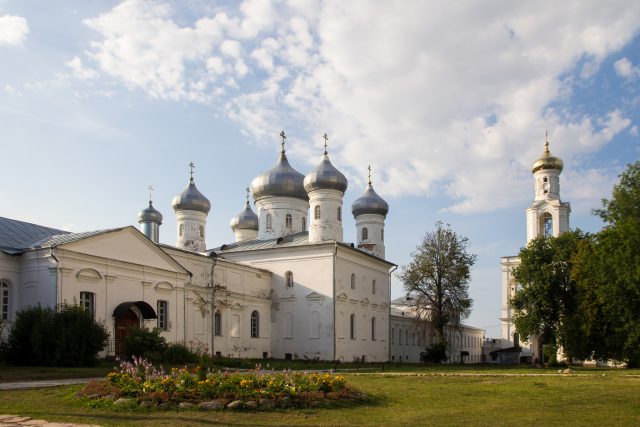
The place Russia occupies in the political maelstrom in Washington, the recent sanctions bills in Congress and Putin’s cuts to the American diplomatic presence in Russia are driving the US’s relationship—and hence the West’s relationship—with Russia from bad to worse.
However, the following thoughts—from a Russia neophyte after a trip to Moscow and road journey to Archangel on the Arctic circle—are thrown into the mix, if only to colour reflections on what might, one day, make sense.
First, for an educated country which is militarily strong, Russia remains poor. Outside central Moscow or St Petersburg, or more modest cities such as Petrozavodsk or Archangel, the urban backstreets of smaller towns are unpaved and the housing ramshackle—akin, say, to small towns in Chile or Argentina.
Russia’s GDP (measured conventionally and not in purchasing power parity) is not much more than Australia’s and a lot less than Spain’s. Russia needs economic change.
Second, the West needs to be cognisant of the sheer strength of Russian nationalism. This is manifest in many forms.
At one end of the spectrum, the Russian Orthodox Church is a force for such nationalism. In the early years of this century, it canonised the last Romanovs (in part as a gesture to Russia’s imperial history) and it continues to accord the family reverence. It’s ironic that in this same country there are also moves to revive Stalin’s legacy. But, seen as reflections of and stimuli to Russian nationalism, these parallel developments are not perhaps so surprising.
Russia also shares America’s fascination with military reenactments. Exhibitions testifying to Russian heroism in war are ubiquitous. Less nobly, the fashion of military camouflage fatigues as leisure wear is more pronounced in Russia than in even the shopping malls of the American South—a curious but telling association with militarism.
A third observation is that, while the cynicism of ordinary Russians towards their politicians and the system as a whole doesn’t spare Putin and his friends from blame for economic failure and corruption, Putin remains admired by most Russians for standing up to the West and for restoring Russian national self-respect. That view is reflected in serious polling, including by the Pew Research Center.
That leads to a fourth point, which was well captured recently by the Belarusian Nobel laureate Svetlana Alexievich in an interview with the Financial Times.
Alexievich observed that what worried her more than Putin was the ‘collective Putin’ in Russia—a deep sense of wounded national pride and contempt for liberal values. In 2015, she had described Russia as in a state of amnesia about its past. Alexievich now saw things as getting worse: ‘But it’s not Putin … the initiative is coming from the grassroots.”
Travelling on from Russia to the US and Europe in the midst of the northern midsummer’s flurry of international meetings, one could not help but be struck by the fact that in the West we are fascinated by Putin—albeit from a variety of different perspectives.
Putin is rightly criticised by Western foreign policy and security establishments (particularly in the US and the UK) for being behind the involvement of Russian agencies in Western elections, Russian activities in Ukraine and Russian callousness in Syria.
Those on the right like him as a role model, and the old left like to see Western security establishments discomfited by him.
Putin is as tough as they come and unblushingly mendacious, but he is not a James Bond villain and is clever and on top of his brief. On some issues, such as the adverse impact on Russia of Western triumphalism at the demise of the Soviet Union, he is a convincing advocate. And he is a better politician than anyone in the West except Angela Merkel.
But we are focusing so much on Putin that we may be ignoring the deep chasm that is increasingly being opened between Russia—the people, not just the leadership—and the West.
Russia was hopeful that it could make progress with Trump, but was quickly disabused of that aspiration when the Russian issue started dominating Washington politics after the inauguration. Moreover, as one widely respected Russian interlocutor argued in Moscow, the US is seen as suffering from its most serious political divide since the Civil War—a divide that would circumscribe its diplomatic capacity even if there were a serene political climate between Washington and Moscow.
Some argue that Russia is the bigger loser from current tensions. It is suffering from lower energy prices and from sanctions. It may have gained self-respect from its Ukraine and Syrian adventures, but at a cost when it needs the means to emerge from poverty.
But irrespective of Russia’s travails, the West is also losing:
- NATO may be going through its most serious crisis since its inception. That’s due not just to Trump’s ineptitude and the circus in Washington but to different perceptions in Europe of how to handle Russia.
- It is of no benefit to either the West or Russia that the impasse on nuclear issues, particularly the Intermediate-Range Nuclear Forces Treaty, remains.
- While Russia suffers from the cost of Ukraine, ongoing political uncertainty also saps confidence in Central and Eastern Europe.
- Any genuine solution to the Middle East wars will need Russian involvement.
- And it is not in the Western interest that, notwithstanding their rivalries, China and Russia might make more common cause as both face challenges from the West.
There are some in the US, most of whom belong to a tough-minded but more constructive era in East–West relations, who argue for the return to a realistic and interest-driven approach in dealing with Russia. This is a difficult time to engage on such a course. But a continued impasse will harden attitudes. It is in the West’s interest—as it is in Russia’s—to break the logjam as soon as there is a modicum of political space to allow a serious effort.

